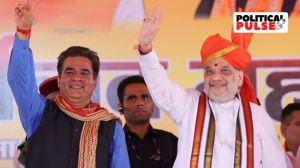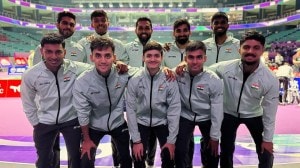- India
- International
Food in mouth
Reform of the PDS cannot be held hostage to wrangling over universalisation or targeting...
Hidden behind the interminable wrangling over the nature of the proposed food security act,of the degree that it should be targeted or universal,are deep questions about the direction in which welfare policy design will go in our ever-expanding welfare state; and,indeed,in the arcane discussion about who the poorest among the poor are lie conflicting approaches to Indias conception of itself. The newly reconstituted National Advisory Council has come down heavily on one side of this debate: saying that the National Food Security Act should include universal entitlement,instead of the Congress manifesto promise of cheap foodgrain for those below the poverty line alone.
The problems with a universal entitlement system should be obvious. First,the fiscal burden it places on the state will be incalculable quite literally so,since once a universal right is allotted,it is impossible to estimate what it will cost future governments and generations. Second,the political economy of universalisation is deeply problematic. What it would do is to set up a permanent lobby within government for keeping the procurement price for grain low which only further disincentivises producers. Forget about dismantling complex water,power,tax and fertiliser subsidy regimes then. And,third,on a conceptual level,the idea of a welfare scheme that isnt explicitly targeted at the needy might seem to many as an uncomfortable,even incoherent,extension of what a state is supposed to do.
However,although these objections are strong,none of them is insurmountable. Lets look at the fiscal burden problem. The obvious point here,of course,is to build in federal cost-sharing: if food security is to be implemented locally,let the states have a share in its costs,ensuring that they are kept low. That might dilute the political benefits to the party in power at the Centre but such politicisation,as weve seen with the recent history of the NREGA,is a temptation that must be avoided anyway. Indeed,the NREGA provides an interesting fulcrum for comparison for those worried about the third objection above. It is,after all,both universal and targeted. Some of the energy invested in inevitably inconclusive battles about exactly how many Indians are poor should be directed towards questioning instead how NREGA-style self-selection could usefully be introduced into the public distribution system. Proper design of a reformed PDS cannot be held hostage either to those concerned that it will dent Indias image to treat all its citizens as poor or to those who think that targeting is a plot to exclude those who actually are.
Apr 26: Latest News
- 01
- 02
- 03
- 04
- 05







































